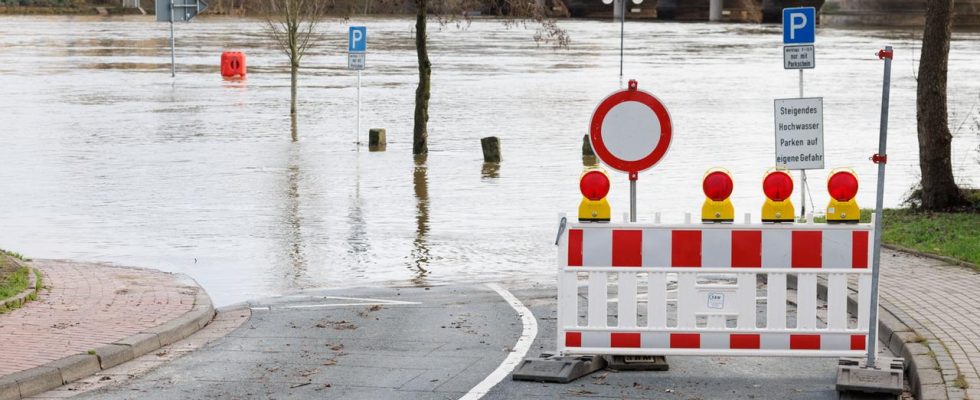It is already clear that the flood damage is enormous. Some SPD politicians are therefore pushing for a budget emergency to be declared. But the federal government wants to stick to the debt brake for the time being – and is receiving support from the community association.
In several federal states, many areas are under water – high costs are becoming apparent. But the federal government is still sticking to the debt brake. The time has not yet come to talk about easing the debt brake, said government spokesman Steffen Hebestreit.
First, the damage caused must be taken into account – but a result is not yet foreseeable: “If such a high amount of damage were to be incurred – which we are not assuming at the moment – then the federal government can also act.”
“The federal government will not shirk its responsibility”
The government reserves the right to suspend the debt brake depending on further developments, said Hebestreit in Berlin. If “a damage event of national proportions with high amounts of damage” had to be dealt with, “the federal government would not shirk its responsibility,” the spokesman added.
Only after the acute phase can the federal, state and local governments discuss how extensive the damage is and how it will be dealt with. “If such a high amount of damage were to occur, which we are not assuming at the moment, then the federal government can also act,” said Hebestreit, referring to the Basic Law. This stipulates that the debt brake can be suspended in the event of natural disasters.
SPD politicians are calling for the debt brake to be suspended
The government spokesman made the comments in response to the demands of several SPD politicians. They had discussed suspending the debt brake again. “If financial aid from the federal government is required, then I think it makes sense to suspend the debt brake,” said SPD deputy parliamentary group leader Dirk Wiese to the Funke media group. “Because these are exactly the emergencies in which the constitution allows the debt brake to be suspended.”
The SPD member of the Bundestag Andreas Schwarz also argued to the “Spiegel”: “The floods are causing immense damage, especially in Lower Saxony. We could suspend the debt brake for these costs.” This is also possible after the recent budget ruling of the Federal Constitutional Court. “After all, this is an unforeseeable natural disaster. The verdict leaves room for that,” said Schwarz.
The budget spokesman for the SPD parliamentary group, Dennis Rohde, told “Stern”: “The full extent of the flood damage cannot yet be foreseen, but for exactly such cases we have the option of suspending the debt brake, which is in the Basic Law.”
After continuous rain
The flood remains
The Union and FDP want to stick to the debt brake
However, the Social Democrats’ proposal is rejected by the Union and the FDP. Union parliamentary group deputy Mathias Middelberg spoke of sham debates. The federal government could also provide financial help within the framework of the regularly available funds, the CDU politician told the “Rheinische Post”.
In its budget planning for 2024, the government wants to stick to the debt brake so far. However, it is still being examined whether it will be suspended again in order to further finance the Ahrtal aid after the 2021 flood in the amount of 2.7 billion euros. According to Hebestreit, this review is still ongoing.
FDP parliamentary group deputy Christoph Meyer also rejects suspending the debt brake because of the flood situation. “For the first acute relief measures, the federal government is supporting the affected regions through the THW (Technical Relief Organization),” said the FDP politician to the dpa news agency. “It is still completely unclear what damage will be caused by the flood.” It is currently not clear that the states and the federal government are financially overwhelmed by the flood. Suspending the debt brake is therefore currently not justified.
Community association advises calmness
Community association president Uwe Brandl (CSU) also sees “no reason at all” for suspending the debt brake. “I would advise calmness and restraint,” said the head of the German Association of Cities and Municipalities (DStGB). After all, “every five minutes you can find some other difficult situation” that could justify suspending the debt brake.
Instead, it is about correctly prioritizing the funds available. Brandl particularly questioned social benefits. “Municipalities alone spent more than 70 billion euros on social benefits last year,” he said. The amount has doubled within 20 years. This is not a sustainable and balanced development. The federal government would therefore have to ask itself whether, for example, income-independent payments are the right way.

